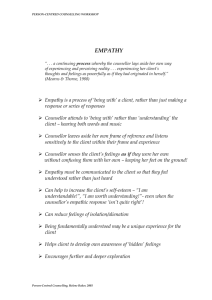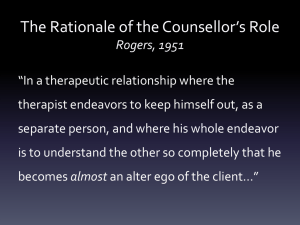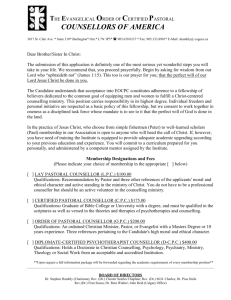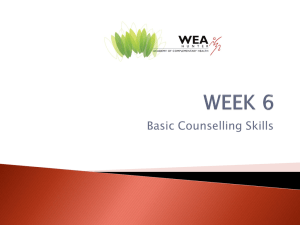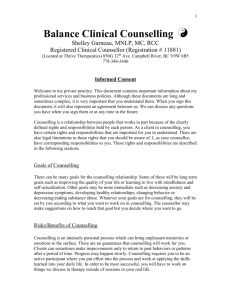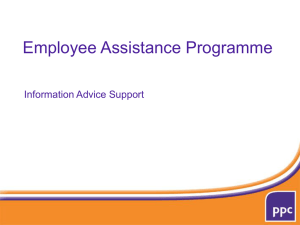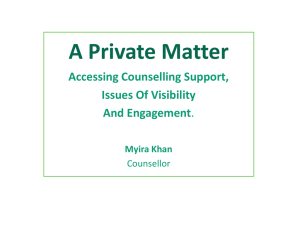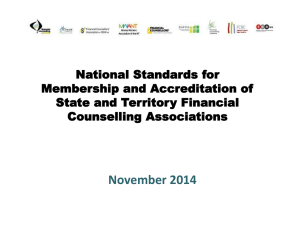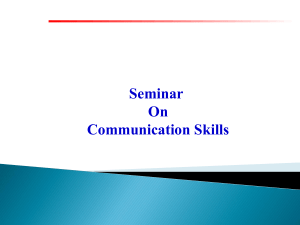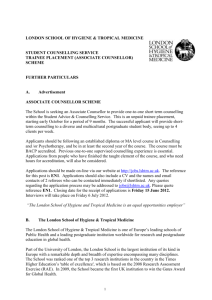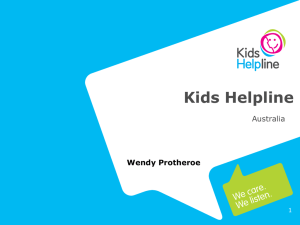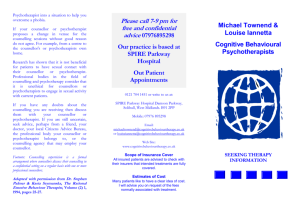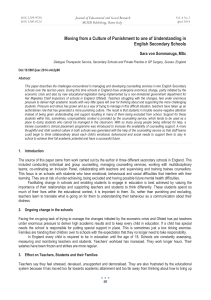Basic Concepts in Counseling - Webs
advertisement
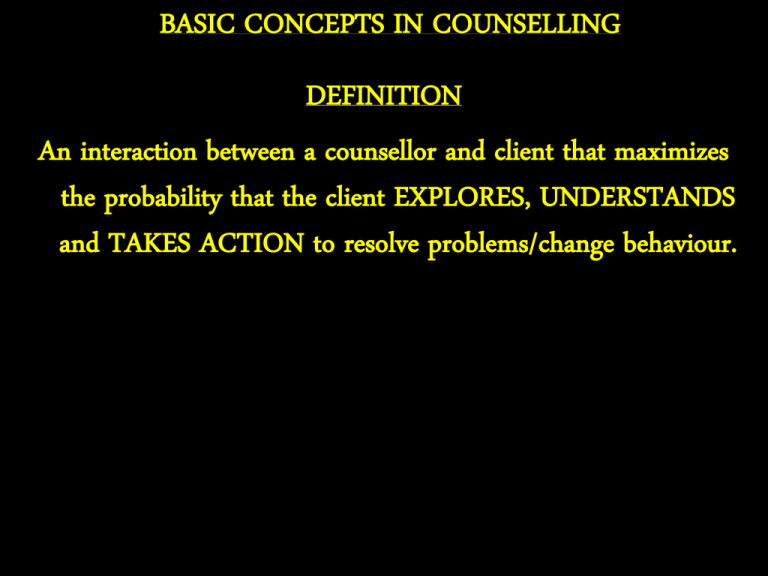
BASIC CONCEPTS IN COUNSELLING DEFINITION An interaction between a counsellor and client that maximizes the probability that the client EXPLORES, UNDERSTANDS and TAKES ACTION to resolve problems/change behaviour. Concepts Cntd. The interaction – trusting, issue centered, goal-oriented. The Process – exploring, evaluating, discovering, clarifying and understanding feelings and concerns as well as the problems. The Goal – behaviour change, decision making, relief of feelings etc. Concepts Cntd. What Counselling is Not • Giving advice • Guidance • Education • Conversation • Interrogation • Confession • Prayer • Information giving • Ongoing therapy Qualities of a Good Counsellor Brain Storm Conditions that facilitate Counselling • • • • Internal Conditions Respect Empathy Genuineness Attentiveness/Accessibility Conditions that facilitate Counselling External Conditions • Physical Setting • Seating Arrangement • Privacy • Confidentiality The Counselling Process • Three main stages Beginning (Relationship building/exploratory stage) • Put client at ease and build trust • Ask what the problems is • Find how the client would like the problem solved or managed • Clarify what the client expects from counselling • Describe the help the counsellor can realistically give • Give realistic hope for change or assistance • State the counsellors commitment to work with the client and elicit theirs also • Assure client of confidentiality and state any limits to confidentiality. Beginning Stage Cntd. The Beginning stage would often determine whether a person will return for more sessions or not. Skills Used Establishing rapport Active listening Middle (Information Gathering/Understanding stage) The goal is to gather information to understand the client and his/her problem better and help him/her to do so also. • To discover coping abilities and vulnerabilities • To support the continuing expression and discussion of feelings • To help the client move towards acceptance and control. End (Action and Resolution) Stage After building trust and clarifying the problem and the client’s strength and vulnerabilities the counsellor should encourage and support the client to do the following: • Rethink the problem in ways that provide solutions e.g. consider different options • Work out a plan of action that will lead to a solution or change. The plan should consider the client’s values, strength, weakness and willingness to execute the plan. End Stage Cntd. • Carry out the plan – No solution or change can occur unless this is done so • Encourage, admonish, lovingly insist on accountability • Give homework • Identify others who can help • Follow up End Stage Cntd. • Evaluate the counseling help in terms of changes in behaviour or solutions to problems. Evaluation involves documenting baseline behaviours and problems so change can be measured. End Stage Cntd. It is not always that a counsellor can help clients solve problems or change behaviour. Sometimes the just need someone to care e.g. psychotic clients. To do so • Listen • Use verbal and non verbal behaviour to support and encourage. Termination Counseling must end at some point. A dependent relationship is not desirable. Ending the close relationship between the counsellor and the client can be difficult for both therefore termination should be carefully and gradually planned in order to • Ensure maintenance of coping skills • Support the maintenance of behavioral changes • Assure the client of continuing help with handling future problems Termination Cntd. • Review plans for the management of problems and • Make sure that al needed and available resources and referrals have been identified and are being used. • Ensure that the sad feelings and pain of losing the warm ongoing relationship is acknowledged and expressed by both counsellor and client.
